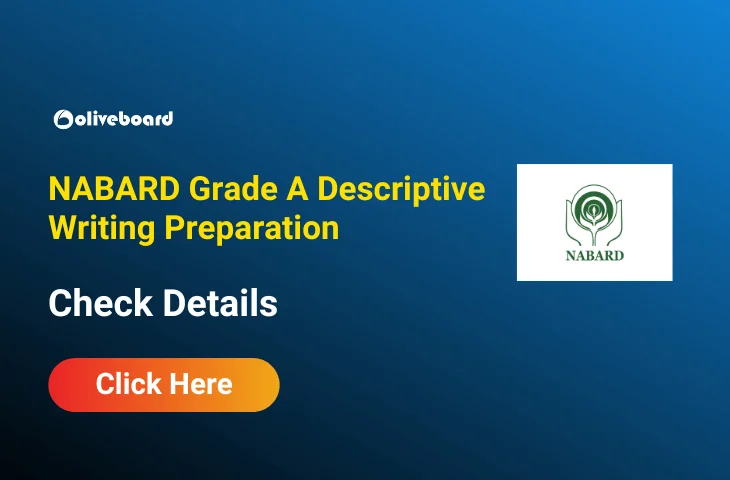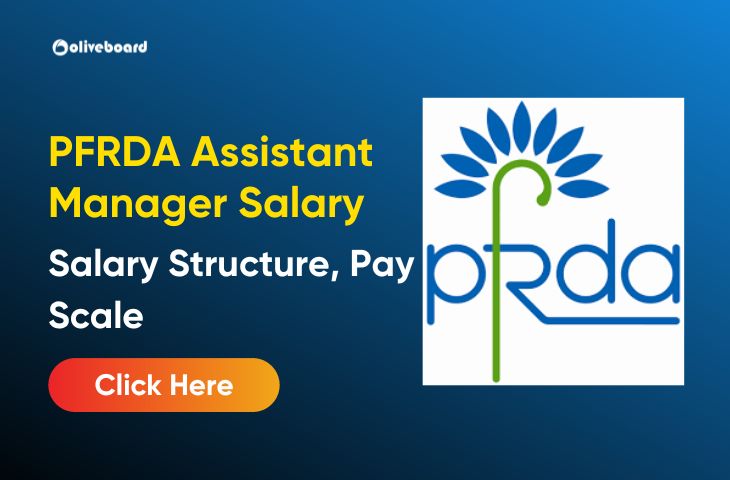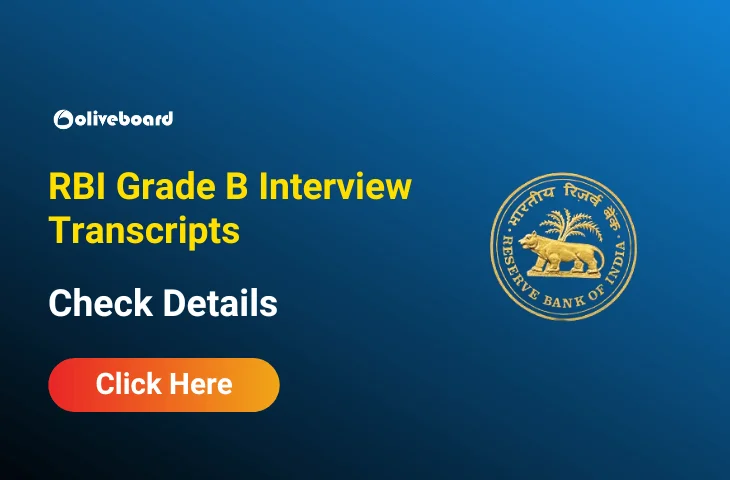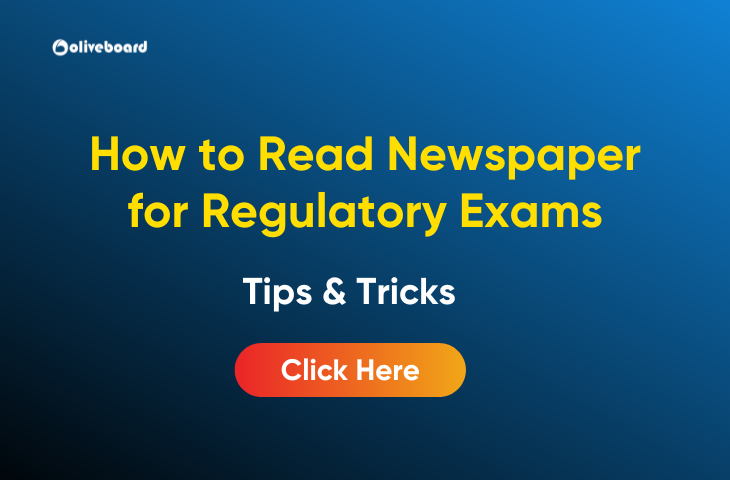Reading newspapers effectively is crucial for aspirants preparing for regulatory exams like RBI Grade B, NABARD Grade A/B, and various bank examinations. It enhances your general awareness, comprehension skills, and ability to articulate thoughts, skills essential for both objective and descriptive sections of these exams.
Why Newspaper Reading Matters for Regulatory Exams
Reading newspapers is not just about staying informed, it is about strategic preparation for the exam.
- Current Affairs Mastery: Most regulatory exams include questions on current events related to the economy, finance, international relations, and government schemes. Newspaper reading ensures you stay ahead with the latest updates.
- Improved Descriptive Writing: The descriptive paper (especially in RBI and NABARD exams) evaluates your ability to analyze and articulate your opinions on trending topics. Editorials help you learn this art.
- Enhanced Reading Speed & Comprehension: Regular practice boosts your ability to read and understand quickly, which is crucial for both objective and descriptive papers.
- Vocabulary & Grammar Boost: Reading quality newspapers introduces you to formal vocabulary, idioms, and writing styles used in English descriptive sections.
Recommended Newspapers for Regulatory Exams
Choosing the right newspaper is just as important as reading it regularly. Go for newspapers that offer quality editorial analysis and reliable news.
| Newspaper | Why it is Recommended |
| The Hindu | Rich editorials, national news, international coverage |
| The Indian Express | Opinion pages with deep insights on economy and polity |
| Business Standard | Strong coverage of monetary policies, budget news, and RBI actions |
| Mint | Ideal for understanding business and finance concepts in simple terms |
| Economic Times | Business and financial market updates, economic policy developments |
Tip: Pick one newspaper and stick with it. It’s better to follow one source regularly than switching between many.
What to Read on Newspaper for Regulatory Exams
Not all sections of a newspaper are equally important for exam prep. Here’s what you should focus on:
| Newspaper Section | What to Focus On |
| 1. Front Page | Major national, economic, or international headlines. Avoid political gossip or celebrity news. |
| 2. Editorials & Op-Ed Pages | Useful for essay writing and descriptive answers. Focus on economy, reforms, agriculture, etc. Practice summarizing in 100–150 words. |
| 3. Business & Economy | RBI policies, GDP, inflation, SEBI/NABARD reports, FDI updates, banking mergers, taxation reforms. |
| 4. Science & Technology | Focus on AI, space tech, agri-tech, health missions, and government innovation schemes. |
| 5. National & International | Read about schemes (PM Kisan, Jal Shakti), India’s role in global events, summits (G20, BRICS, COP). |
| 6. Miscellaneous | Cover awards, important appointments, books/authors, and notable obituaries. |
Step by step Strategy on How to Read
Many aspirants make the mistake of reading the newspaper from start to end, which takes a lot of time and doesn’t help much. Instead, you need a proper strategy that helps you focus only on the parts that are useful for the exam. This step-by-step guide will help you read the newspaper smartly and make your preparation more effective.
1. Skim First, Then Deep Dive
- Quickly skim the headlines to shortlist useful articles.
- Read only those relevant to your syllabus.
2. Active Reading
- While reading, highlight key data, facts, or arguments.
- Ask yourself: “Can this be asked in the exam or help in the descriptive section?”
3. Make Short Notes
- Maintain a current affairs notebook (physical or digital).
- Break your notes into categories: Economy, Environment, International, Banking, etc.
4. Maintain a Vocabulary List
- Note down new words with meanings and example sentences.
- Revise this list weekly. Many words from editorials are reused.
5. Revise Weekly
- Use Sundays to revise your weekly notes.
- This habit reduces the burden of last-minute cramming.
Tips & Tricks
Reading newspapers every day is important, but just reading isn’t enough. You need to know how to use that information in the exam. These tips and tricks will help you save time, remember what you read, and improve your performance in both objective and descriptive sections of regulatory exams.
- Be Consistent: Set a daily time slot (30-45 minutes). Morning is ideal.
- Avoid Over-Reading: Don’t read every page. Stay syllabus-focused.
- Use Markers/Apps: Use highlighters or tools like Notion/Evernote for clipping useful articles.
- Practice What You Read: After reading editorials, write short essays to improve descriptive writing.
- Watch News Analysis: Supplement your reading with video explainers for better understanding of complex topics.
FAQs
Reading newspapers helps you stay updated on current affairs, improve descriptive writing, and boost your comprehension skills essential for regulatory exams.
The Hindu and The Indian Express are highly recommended for their quality editorials and coverage of national and economic news.
Around 30–45 minutes daily is enough if you follow a focused strategy.
No, only read the relevant sections like front page, editorials, economy, and international news. Avoid entertainment or celebrity pages.
Editorials teach you how to structure arguments and express opinions, which is helpful for writing essays or answers in the descriptive section.
Yes, maintain short notes by topic (e.g., economy, banking, international) and revise them weekly.
Yes, noting down new words from editorials and using them in your writing improves your vocabulary and grammar.
- NABARD Grade A Phase 2 Information Handout 2026 Released

- NABARD Grade A Phase 2 Shift Timings 2026, Reporting Time

- NABARD Grade A 25th January 2026 Analysis, Exam Trend

- NABARD Grade A Descriptive Writing Preparation 2026, Check Guide

- PFRDA Grade A Salary 2026, Check In Hand Salary

- RBI Grade B Interview Transcripts, Know RBI Interview Questions


Priti Palit, is an accomplished edtech writer with 4+ years of experience in Regulatory Exams and other multiple government exams. With a passion for education and a keen eye for detail, she has contributed significantly to the field of online learning. Priti’s expertise and dedication continue to empower aspiring individuals in their pursuit of success in government examinations.
